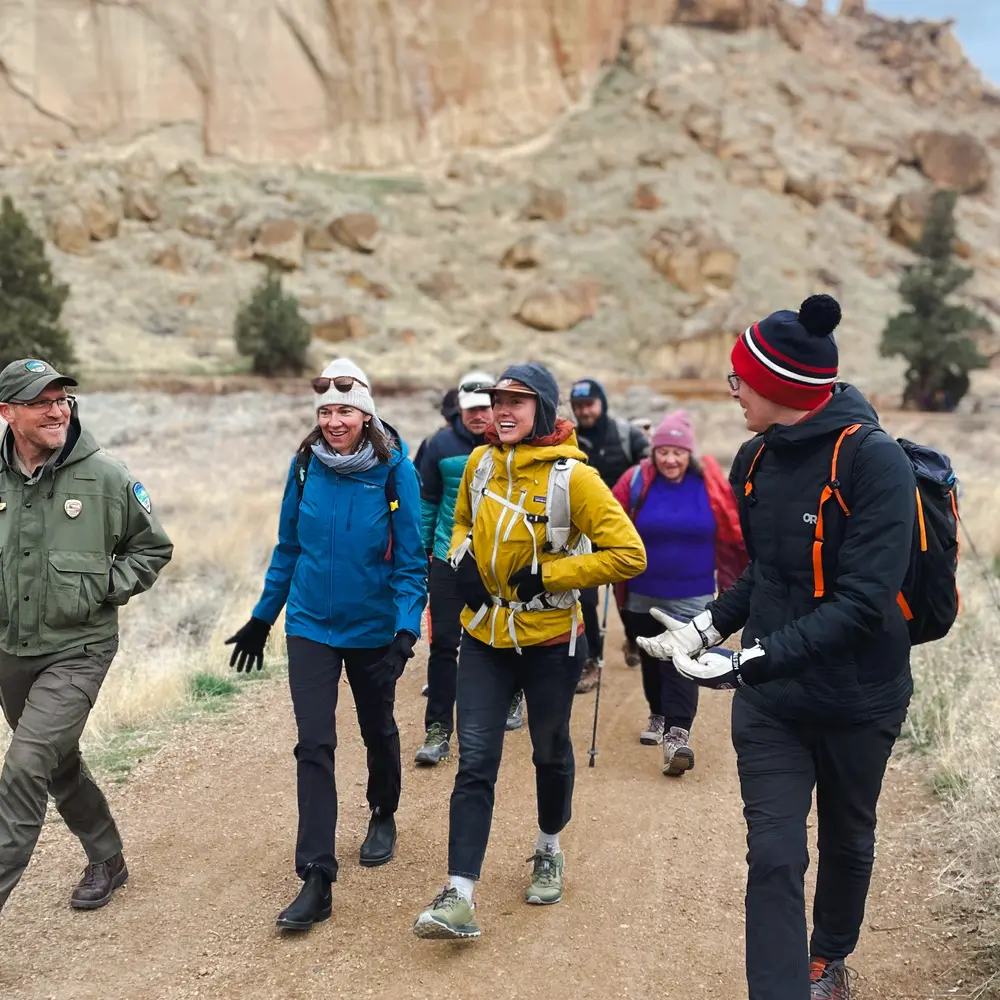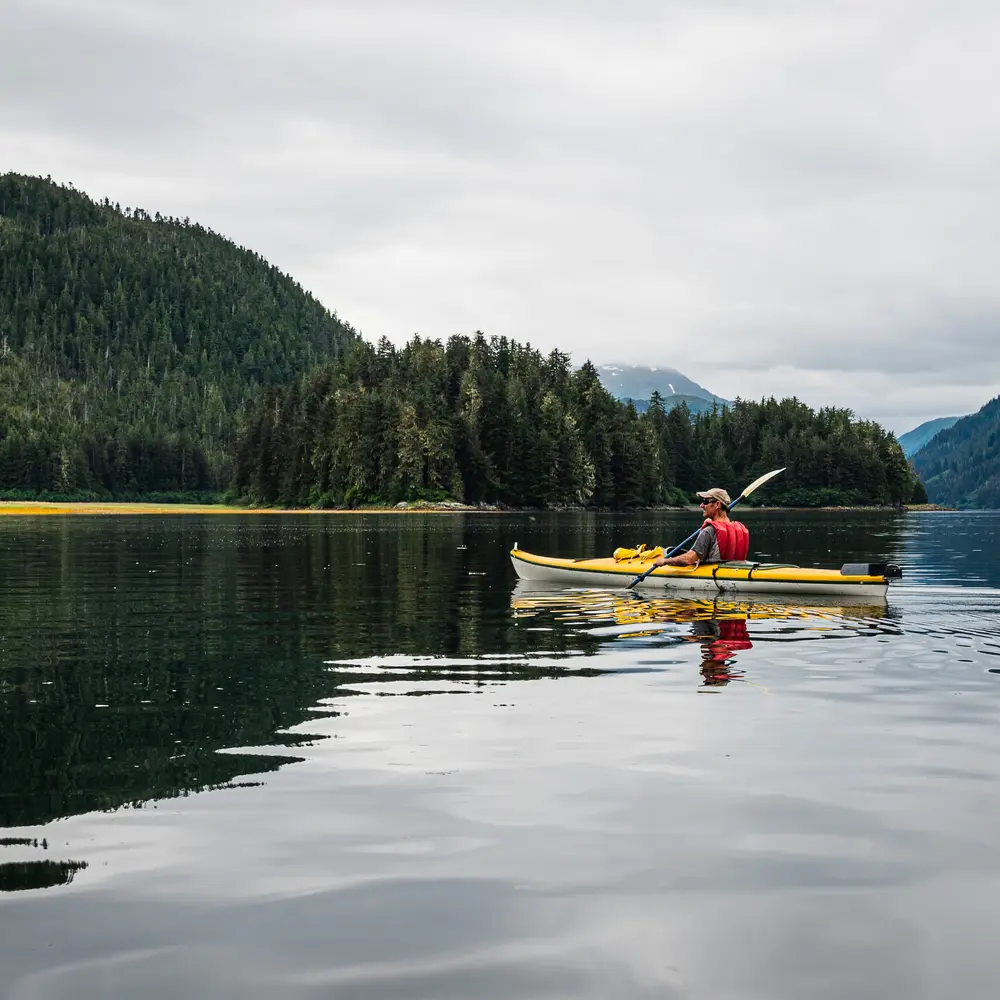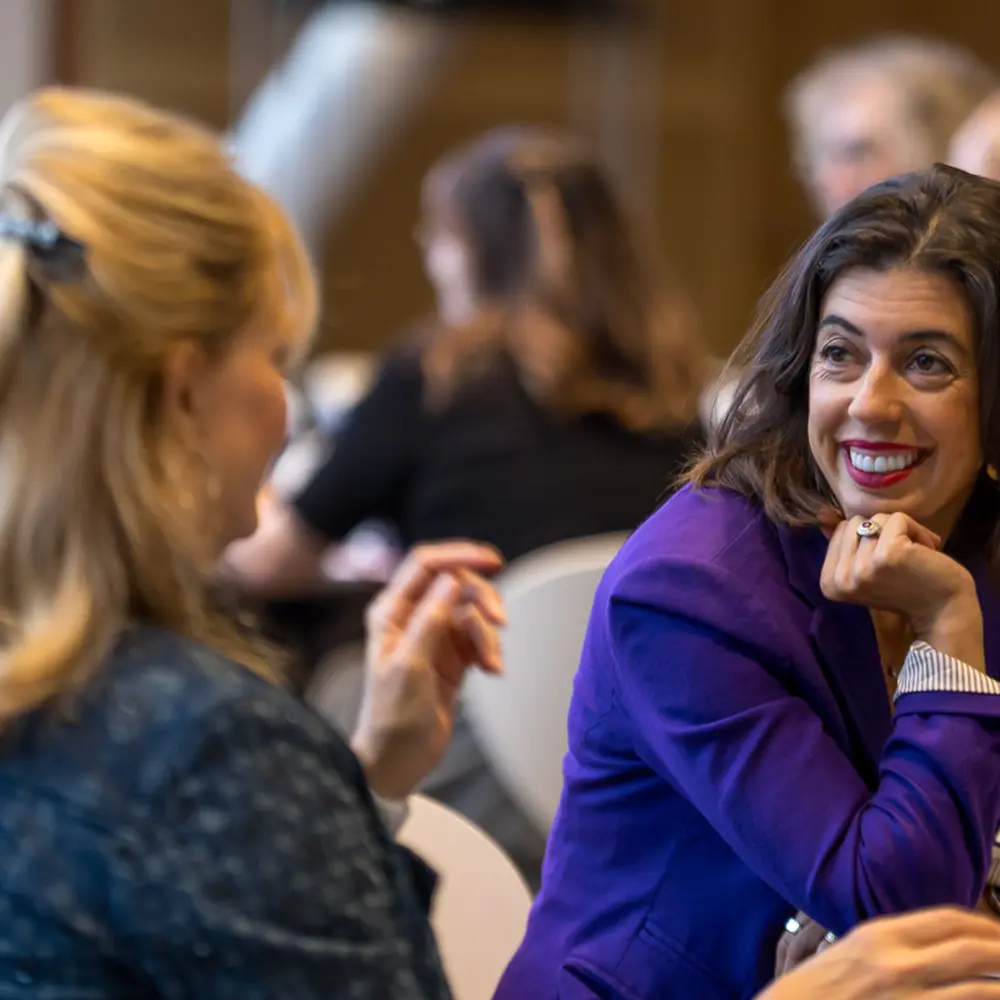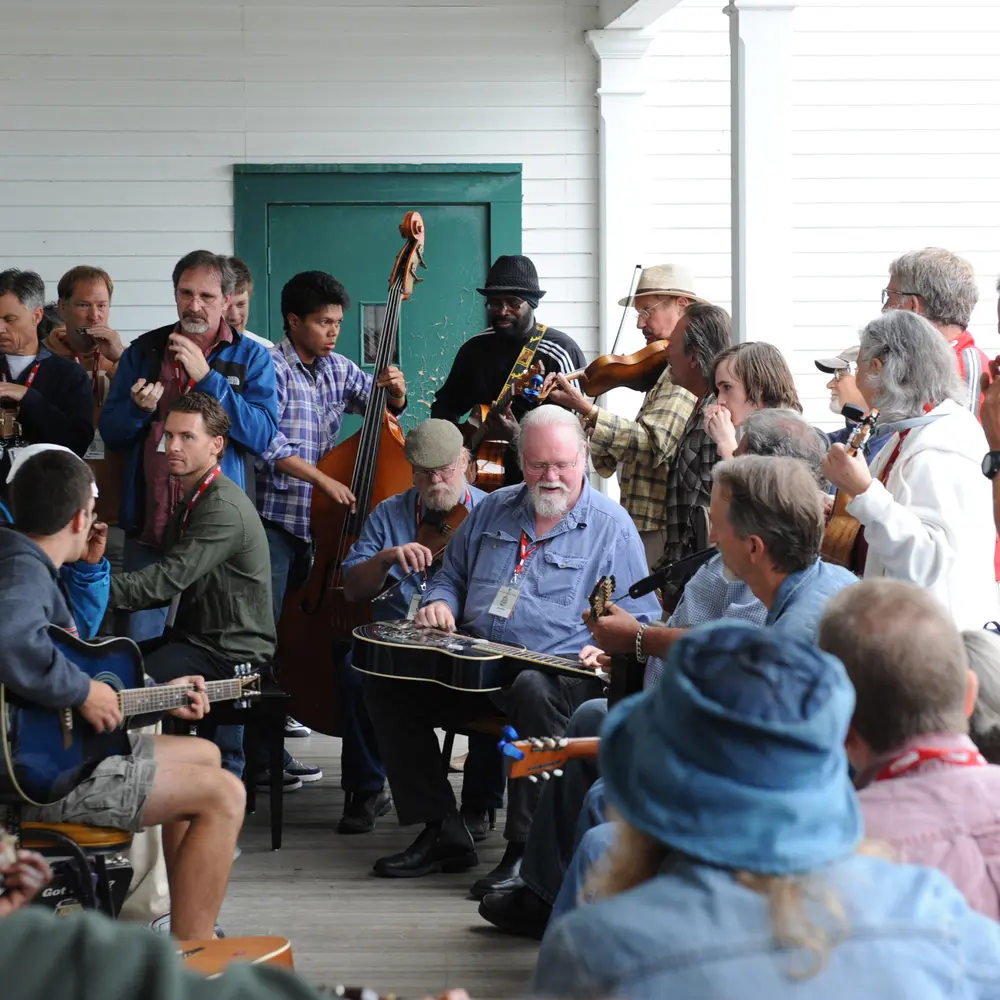Two Important Notes: #
- Please see an important update on grant timing, including the introduction of new structured submission periods, on our Strategic Grant Application page.
- Eligibility Guidelines are updated periodically based on improvements to grantmaking processes, feedback from nonprofits, and changes in the field. Please note the "Last Updated" dates for each section below for current guidelines before submitting a Letter of Inquiry.
To Determine Eligibility: #
- Read “Organizational Eligibility” and “Project Eligibility,” as these apply to all organizations and projects.
- Under “Areas of Focus,” read the specific criteria for the area in which your organization works.
- If eligibility requirements are met, proceed to the “Getting Started” steps on our Grant Application Process page.
For All Organizations and Projects #
Organizational Eligibility #
Last Updated: 2/11/2026
- Funding Region: The Trust prioritizes grants to organizations based in Alaska, Idaho, Montana, Oregon, and Washington, or projects with greater than 50% impact to this region. A small number of grants are made for impact beyond this region, by Trust-initiated invite only.
- Funding Priorities: The Trust currently prioritizes grants for projects that build capacity in nonprofits that contribute to human flourishing in the Pacific Northwest. Eligible projects reflect the strategic priorities of an organization’s leadership and align with the Trust’s priorities and areas of focus (Artistic & Cultural Expression, Civic Engagement & Community Services, Education & Leadership Development, Health & Environmental Stewardship, and Scientific Research).
- Eligible Entity Types:
- A nonprofit organization recognized as a tax-exempt public charity under section 501(c)(3) of the Internal Revenue Code of the United States. A nonprofit organization applying for support must verify the possession of the most current IRA documentation (“determination letter”) reflecting its status as a public charity. Partnerships and related-party agreements do not take the place of an organization having its own U.S. 501(c)(3) determination.
- A federally recognized tribal entity
- A government entity such as a university or a medical center, but please note that only certain governmental entities are eligible under these guidelines. See limitations in Organizational Eligibility Section 5.
- Ineligible Entity Types:
- Fiscally sponsored organizations
- Governmental entities that receive a substantial amount of government funding, such as public libraries, public K-12 school districts, public charter schools, public parks and recreation, fire departments, fire districts, and police stations (see Organizational Eligibility Section 5 below).
- Section 501(c)(4) organizations (advocacy or social welfare organizations)
- Section 501(c)(6) organizations (business leagues, chambers, and trade associations)
- Section 509(a)(3) supporting organizations, regardless of type
- Churches, synagogues, mosques, and other places of worship that do not have a separate 501(c)(3) status and an independent governance board for external programs
- Private foundations (non-operating) – learn more here
- Non-U.S. entities
- Individuals
- Senior centers, hospice organizations, and other services for the aging
- For-profit businesses, corporations, or LLCs
- Entities with fewer than three complete years of operating and financial history
- Entities that, in policy or practice, unlawfully discriminate based on race, ethnic origin, sex, creed, or religion
- Entities that receive a majority of funding and support from commercial gambling revenue (lottery, casino, etc.)
- Guidelines Around Government Funding: The Trust prioritizes organizations and projects with demonstrated diversification in their funding profile, as data shows this is a cornerstone of successful, sustainable nonprofits. One consideration within this approach is the level of government funding received by an organization.
- The Trust does not generally fund government institutions such as public school districts or libraries. Exceptions to this include select entities, such as universities (scientific research), rural/tribal community colleges, medical centers, historical societies, and tribal government entities.
- The Trust does not generally fund capital projects with government sources contributing 70 percent or more of the required funding.
- The Trust does not generally fund sustained staff positions receiving more than 50 percent of government funding.
- The Trust does consider projects and organizations that obtain significant funding from government sources if they are related to business transactions. For example:
- Cases where the government is a direct customer of services provided by the nonprofit such as youth skill development groups, refugee service providers, or youth forestry service providers
- Organizations receiving Medicare or Medicaid reimbursement through patients
- Mental health and social service providers with fees for services (contracts)
- Board Engagement Expectations:
- Organizations must be able to demonstrate significant board engagement, measured by three primary metrics:
- Time (attendance and engagement at board meetings, volunteering, cultivating donors)
- Treasure (direct financial support, securing other funding, access to networks, in-kind donations)
- Talents (wisdom, leadership, experience, or expertise)
- If the project includes funding for fundraising staff, then the board (governance or fundraising board and committees) must demonstrate significant engagement and financial support, as that commitment is a key factor for project success.
- Organizations must be able to demonstrate significant board engagement, measured by three primary metrics:
Project Eligibility #
- Strategic Project Grants: The Trust funds three types of strategic project grants (New Staff or Program Expansion Grants, Capital Grants, and Equipment and Technology Grants). Each grant request should be centered around one type.
- New Staff or Program Expansion Grants: Supports new programs, the expansion of existing programs, start-up costs, and/or related staff member additions. Structured on a declining basis over three years (100/67/33%).
- Hired staff or programs initiated prior to the Trust site visit are not eligible. Hired staff or programs initiated after a Trust site visit are eligible but Trust funding is not guaranteed.
- For organizations located outside the Trust’s region, positions or programs must bring at least 50% project impact to the Northwest.
- Requests for added staff capacity are limited to no more than 2.0 full-time equivalency (FTE). For comprehensive, focused program expansion requests, the Trust may consider more than 2.0 FTE and a portion of new program costs.
- Requests must constitute an addition or increase of permanent, strategic positions with a minimum of 0.5 FTE per position.
- The Trust does not generally fund administrative support positions.
- The Trust does not fund positions that previously existed within the last five years.
- Program and/or staff requests may include new startup technology costs.
- The Trust does not fund requests for positions or programs sustained with revenues of more than about 50 percent from government funding. 50 percent does not include positions or programs that are sustained with fee-based reimbursements or ongoing public contract revenue.
- Guidelines for Fundraising Positions:
- The Trust will fund an organization's first fundraising position, including expanding an existing part-time role to full-time.
- The Trust anticipates a return on investment (ROI) with new funds raised that, at a minimum, double the cost of the position (including proposed associated costs) after the grant is complete (Year 4). The ROI will be analyzed based on the size and context of the organization. Example: Y1 Development Director Cost = $80,000 / Y4 ROI revenue = $160,000 or more.
- The organization’s leadership must be currently implementing an organized development effort.
- Board giving should reflect a spirit of philanthropy in the organization.
- Organizational leadership should reflect engagement in fund development.
- Capital Grants: Supports construction, renovation, land or property purchase, leasehold improvements, and other capital upgrades.
- Eligible Capital Costs:
- Hard Costs: Construction labor and materials, site upgrades, landscaping, utility or system installation, and FF&E (furniture, fixtures, and equipment)
- Soft Costs: Architectural or engineering services, site analysis, permitting, taxes, or external project management (existing staff time ineligible)
- Property Acquisition: The property to purchase must be identified by the time of application and the closing date for purchase must occur after a grant has been awarded.
- Ineligible Capital Costs:
- Long-term debt repayment or debt retirement
- Routine maintenance of short-life items or deferred capital replacements which do not significantly transform programs, operations, or capacity
- Projects funded with more than 70 percent from government funding
- Direct fundraising expenses, feasibility studies, or costs for existing staff time
- Standalone playgrounds (requests to fund playgrounds as part of a larger capital project are eligible)
- The Trust prioritizes projects in which the organization has raised at least 40 percent of the total capital cost prior to Trustee decision and has a viable plan to complete project funding.
- Capital projects completed prior to Trust site visit are not eligible. Capital projects initiated after a Trust site visit are eligible but funding is not guaranteed.
- The Trust expects a diversified funding plan with a demonstration of community support.
- If the operating facility is government-owned, the Trust prioritizes equipment and technology grant requests over capital grant requests.
- The Trust requires a minimum 10-year lease agreement for tenant leasehold improvement projects.
- Eligible Capital Costs:
- Equipment and Technology Grants: Only grants for equipment or technology new to the organization will be considered. Grantees must be responsible for 50 percent or more of the purchase cost.
- The Trust does not fund routine or deferred maintenance not part of a major facility renovation, facility expansion, or new facility purchase.
- Physical equipment should have a life expectancy of 10 or more years. Equipment with shorter life expectancy should include an equipment replacement plan.
- Equipment or technology may be ordered with a deposit prior to Trustee decision. Fully purchased equipment or technology will not be reimbursed.
- Requests may include costs for consultant training for equipment or technology.
- Requests may include up to one year of maintenance costs.
- Technology requests should include replacement and maintenance plans.
- New Staff or Program Expansion Grants: Supports new programs, the expansion of existing programs, start-up costs, and/or related staff member additions. Structured on a declining basis over three years (100/67/33%).
- Ineligible Funding Requests (for all types):
- Standard or ongoing operational costs, including existing staff time
- Existing projects that have been financed from external sources
- Debt retirement or funding for operational deficits
- Funds that will ultimately be passed through to other organizations or individuals
- Standalone requests for short-lived projects, initiatives, or seasonal programs such as event sponsorships, consulting, honorariums, or contract staffing
- Standalone requests for planning or research such as study-based projects, surveys or focus groups, assessments, or stipends
- Projects with funding plans with 50 percent or more of commercial gaming revenue (lottery, casino, etc.)
- Endowments or revolving funds that function as such
- Urgent needs, emergency funding, or gap funding
- Submission Frequency:
- Returning grantees may submit a new Letter of Inquiry three years after the Date Awarded on their most recent grant.
- Declined applicants may submit a new Letter of Inquiry for a different project, one year after the decision date.
- Grant Sizes: Dollar amounts vary by organization and project. The Trust does not generally fund projects with budgets below $100,000 and with request amounts less than $50,000. Review past grants on the Trust’s Grants Awarded page to determine the range of award sizes.
- Collaborative Projects & Shared Services:
- The Trust considers inquiries about strategic collaborative efforts. If your organization is working on or considering a collaborative initiative (such as multiple organizations coming together to address a shared challenge, a collective impact model, or another form of strategic partnership), please reach out to grants@murdocktrust.org for a conversation about the details of the proposed project before submitting your LOI.
- The Trust considers inquiries for projects with outcomes that support multiple organizations in utilizing or creating shared services (such as shared HR, finance, IT infrastructure, or other administrative functions). If your organization is developing shared services initiatives with other organizations or exploring how shared infrastructure could strengthen your organization, please reach out to grants@murdocktrust.org for a conversation about the details of the proposed project before submitting your LOI.
Specific Guidelines by Area of Focus #
The Trust serves a wide breadth of organizations and sectors across the Pacific Northwest region. Please review the list of request constraints for specific areas of focus. Not all sectors are listed, and any unlisted sectors do not have limitations within general grant eligibility.
Artistic & Cultural Expression #
Last Updated: 10/28/2025
- All staff or program expansion requests are limited to one position only.
- The Trust prioritizes strong programming that demonstrates impact and evidence of project-related expertise.
- The Trust prioritizes projects that focus on one of the following outcomes:
- Creativity in Service to Community: Projects that lead to community-building, education, innovation, and an open exchange of ideas and beliefs, where arts and culture create a space for connection
- Increasing Expertise: Projects that focus on educating the next generation of artists, performers, culture-bearers, and leaders, or create career opportunities in the field
- Connecting with Audience: Projects that focus on innovative approaches to deepen relationships and expand audiences while adapting to emerging audience trends
- Capital projects must be intentionally designed to increase capacity toward Artistic & Cultural Expression outcomes listed above.
- Arts Education: The Trust prioritizes community-based arts education programming, outside of school hours, that leads to the acquisition of artistic skills.
- Exhibits:
- The Trust prioritizes permanent exhibits with an expected lifespan of 10 years or more.
- The Trust does not fund temporary exhibits.
- Eligible entities within the Trust’s funding region may request funding for traveling exhibits with demonstrated broad reach. The Trust rarely funds traveling exhibits outside the Trust funding region; to be eligible, this request must include partnership with an eligible entity in the Trust funding region and demonstrated broad reach.
- Exhibits must demonstrate current curatorial standards in the field: knowledgeable interpretation, high-quality production, strong educational programming, and broad reach.
- Museums, Historical Societies, and Heritage Organizations:
- The Trust prioritizes funding for collections that are unique and well-managed, with exhibits curated by knowledgeable professionals.
- Eligible entities will demonstrate community support and engagement, with programs that go beyond drop-in exhibits for visitors.
- The community served should extend beyond the town/city the organization is located in. This broad reach should also be reflected in the exhibition programming.
- Requests are limited to organizations with formal accreditation or demonstrated peer recognition for excellence in programming.
- Historic Preservation: The Trust does not fund requests that solely focus on historic preservation without any ongoing outreach or education.
- Literary Arts: The Trust does not fund requests for the support of projects by individual writers or publications.
- Media (Public & Community Broadcasting):
- The Trust does not fund requests to support individual projects from media artists or fiscal sponsorships of individual media artists.
- Support for broadcast or film projects from media nonprofits is rare and must demonstrate broad educational and audience reach, as well as alignment with Trust values and regional focus.
- Requests are limited to equipment or technology projects only.
- Performing Arts: The Trust does not fund projects by individual artists or regular production seasons.
- Visual Arts: The Trust prioritizes funding for public visual art projects with unique, historical, and regional impact.
Civic Engagement & Community Services #
Last Updated: 11/4/2025
- Community Building:
- The Trust prioritizes organizations and projects that (a) demonstrate a clear path to transformation or stability for individuals and families and (b) focus on upstream solutions toward community vitality.
- Nonprofits with multi-site, regional or state-wide reach are eligible (e.g., nonprofit collaborations and collaboratives, intermediary organizations, multi-site organizations, affiliate associations).
- Housing Security: Emergency shelter, transitional housing, and permanent supportive housing that includes individualized wraparound services are eligible. Projects that create or support affordable housing are not eligible.
- Food Security: (a) Upstream food systems development or (b) individualized wraparound services that include access to food are eligible.
- Youth Clubs & Camps: Enrichment outside of the school day within a positive youth development framework or similar holistic approach toward (a) character development and (b) reducing social isolation are eligible.
- Enterprise (Micro and Small): Services to entrepreneurs and small businesses toward community wealth-building are eligible.
- Asset-Based Community Development: Projects that demonstrably increase community connections and reduce social isolation are eligible. Disaster relief projects and sports facilities are ineligible.
- Other: Individualized wraparound services to refugees/immigrants, children in foster care, and the formerly incarcerated are eligible.
- Section 501(c)(3) organizations affiliated with 501(c)(6) organizations (business leagues, chambers, and trade associations) are ineligible within this area of Trust funding.
- Strengthening Democracy: The Trust prioritizes projects that (a) build bridges to solve intractable problems, (b) protect constitutional rights, and (c) promote civic education.
- Faith Formation:
- The Trust considers projects that generate human flourishing through the love of God and love of neighbor, supporting the common good in community life and the public square.
- The Trust prioritizes projects that impact emerging leaders (ages 13-26), faith leaders in the public square, and under-reached or under-resourced populations.
Education & Leadership Development #
Last Updated: 10/30/2025
- Education:
- Early Childhood Education
- Only projects that align with the following outcomes are eligible:
- Projects that focus on non-cognitive skills development
- Projects that promote school readiness
- Projects that include evidence informed literacy programs (e.g., science of learning)
- Projects that incorporate family/care giver engagement
- Only projects that align with the following outcomes are eligible:
- K-12 Schools and K-12 Education Support: The Trust considers private/independent schools, private/public charter schools, and nonprofits/community-based organizations that offer in-school or after-school programming that supplement (not replace) the work of K-12 education staff.
- Only projects that align with the following outcomes are eligible:
- Projects that promote STEAM (science, technology, engineering, arts, and math)
- Projects that encourage innovation and entrepreneurship
- Projects that develop 21st century skills, future of work, and/or career-connected learning
- Projects that support successful student transitions (from elementary to middle school and middle to high school)
- The Trust prioritizes requests including cross-sector collaborations and partnerships.
- The Trust does not typically fund requests for classroom teaching staff and professional development costs.
- The Trust does not fund capital deferred maintenance.
- Enrollment minimum requirements by state: Oregon and Washington, 200 or more; Alaska, Idaho, or Montana, 150 or more.
- Tuition Assistance: To align with the Trust’s value for access, the Trust prioritizes requests from organizations with more than 20 percent in annual tuition budget for needs-based tuition assistance or scholarships.
- Board Composition: In addition to parents, grandparents, or guardians of current students, the Trust prioritizes requests from organizations with 25 percent or more of board members from other interest-holder groups (e.g. alumni who do not currently have children enrolled).
- Private K-12: Schools associated with churches or places of worship must demonstrate that at least 30 percent of their student population comes from outside a single church, even if they share the same faith or denomination.
- To be eligible, K-12 schools must hold accreditation from a recognized accrediting body. Given the diversity of educational institutions, including faith-based schools, the Trust accepts accreditation from regional, national, or specialized agencies that ensure rigorous standards of academic quality, governance, and accountability.
- Only projects that align with the following outcomes are eligible:
- Community Colleges, Vocational, Trade, and Technical Schools:
- The Trust prioritizes equipment, technology, and program expansion requests from community colleges, vocational, trade, and technical schools—both improving access and supporting pathways that enable students to continue their education beyond high school completion.
- The Trust prioritizes requests demonstrating cross-sector collaborations and partnerships.
- Each community college, which includes all associated satellite campuses, is eligible to submit one project for funding every three years.
- A minimum of 100 students enrolled (total) is required.
- Only projects that align with the following outcomes are eligible:
- Projects that support outcomes for rural, Native/Indigenous, and first-generation college students
- Projects that support student transitions (e.g., from high school to post-secondary and from post-secondary to career or university)
- Projects that expand initiatives within future of work including STEAM and health-related fields and programs responsive to community economic development (e.g., credentialing, badging, certificate programs, vocational schools, and trade and technical schools.)
- Early Childhood Education
- Private Undergraduate Institutions, Public Universities, and Select Research Institutes: See Scientific Research for guidelines.
- Bible Colleges and Seminaries: Contact Civic Engagement & Community Services (CECS) for guidelines.
- Resourced Social Sector
- Community Foundations:
- The Trust does not fund requests for scholarships.
- The Trust prioritizes requests for funding new staff.
- Leadership Development: Capacity-Building:
- The Trust prioritizes grants to organizations that strengthen technical competencies through skill-building, collaborative decision-making, and fostering alignment and partnerships among leaders. Priority is given to initiatives that cultivate cross-sector relationships and collaborations through a cohort framework.
- The Trust considers projects focused on program or staff expansion.
- Generosity Support: By invitation only.
- Philanthropy Support: By invitation only.
- Community Foundations:
Health & Environmental Stewardship #
Last Updated: 10/30/2025
- Hospitals and Clinics:
- The Trust prioritizes requests for capital projects focused on revenue-generating areas (e.g. emergency rooms, surgical suites, diagnostic and therapeutic equipment).
- The Trust only funds equipment requests for revenue-generating equipment (e.g. diagnostic and surgical).
- Regional Hospitals: The Trust only funds hospitals with fewer than 100 beds. The Trust does not fund large metropolitan hospitals.
- Rural Hospitals: The Trust only funds rural hospitals with fewer than 100 acute beds.
- Mental Health: The Trust prioritizes mental health organizations with models grounded in current knowledge of best practices and offering wrap-around or upstream services.
- Equine Therapy: The Trust only funds organizations with accreditation and certification appropriate for their services.
- Natural Resource Protection and Education: The Trust prioritizes organizations with a wider regional reach that encourage stewardship and working lands approach.
- Trail Organizations: The Trust prioritizes trail groups with regional impact and multiple partnerships. Only Staff and Equipment requests are eligible.
- Land Trusts:
- The Trust prioritizes land trusts that are accredited and pursuing projects with regional reach, organizations with multiple areas of expertise, and organizations capable of complex transactions.
- The Trust does not fund conservation easement purchases or land acquisition requests.
- Ineligible Entity Types within Health & Environmental Stewardship:
- Local watershed councils
- Local green infrastructure or energy organizations without regional impact
- Humane societies or animal shelters
Scientific Research #
Last Updated: 12/17/2024
- Private Undergraduate Institutions: The Trust considers projects that are one of the president’s highest strategic priorities for capital, equipment, and technology projects in STEM or allied health education. Smaller institutions may be eligible for senior or strategic staff positions and programs.
- Select Biomedical Research Institutions: The Trust occasionally considers requests for special projects other than scientific research.
- Tier 1 – Public Universities: The Trust occasionally considers requests for special projects other than scientific research.
- Tier 2 – Public Universities: Trust funding is limited to scientific research support.
- Scientific Research Projects and Scientific Research Initiatives application resources and guidelines can be found on the Scientific Research webpage.
If you have any outstanding questions after reviewing the eligibility guidelines, please contact Grants@murdocktrust.org.






